UW MEM-C, UW Nanofabrication Facility, and Bruker are pleased to co-host an AFM workshop
on November 4-5, 2025. During this free two-day event, our AFM experts will showcase the
unique and powerful capabilities of the technique. Hands-on demonstrations will feature Bruker
Dimension Icon and Dimension FastScan, accessible to both UW and non-UW users through
MEM-C’s Shared Facilities and Nanofabrication Facility, respectively. If interested in providing
samples for Bruker’s experts to demonstrate during the workshop, please register
and email Dr. Thi Kieu Ngan Pham at Thi_Kieu_Ngan.Pham@bruker.com.
Category: Uncategorized
MEM-C & PREM Summer Programs in Full Swing
Our 2025 MEM-C summer undergraduate researchers are in the last few weeks of their 9-week program! This summer we welcomed 14 amazing students from 10 institutions across the U.S., including 8 students through the Research Experience for Undergraduates (REU) program and 6 from our Partnership for Research and Education in Materials (PREM) partner institutions at the University of Hawai’i – Mānoa and the University of Central Florida. These students are working in MEM-C labs across five departments at UW.
On top of a full summer of hands-on research in which the students have been gaining countless in-lab skills, MEM-C has also supported weekly events and activities for our summer guests. Every week the REU and PREM students meet with our MEM-C Education and Outreach Team (Education and Teaching Fellows Eden Tzanetopoulos and Emily Miura-Stempel and Education Director Andrea Carroll) for a professional development seminar and journal club. Seminar topics include “How to Read a Scientific Paper”, “Writing a Resume and Cover Letter” and “Research Integrity and Ethics with Dr. Malia Fullerton”. During the journal club, the students present a journal article relevant to their summer research and gain practical presentation skills in the process.
MEM-C has organized weekly lab tours for the students, spanning multiple departments across UW (Material Science & Engineering, Biology, Chemistry, Spectroscopy, MEM-C Shared Facilities, Physics, and more!). The summer cohort of students also participated in a 3-session Data Science Training offered by UW Information Technology (UW-IT) where they learned essential coding and machine learning skills. A MEM-C faculty panel was organized for the students, allowing them to ask professors across multiple departments and schools about their journey to becoming faculty and members of an interdisciplinary research center. The REU and PREM students joined the annual MEM-C All-Hands Meeting at UW Pack Forest near Mt. Rainier, where they joined sessions of technical talks, professional development workshops, and an evening poster session to hear MEM-C graduate students and postdocs present their research updates and engage in research discussions. To support a collaborative and inviting summer program, MEM-C co-hosted an afternoon of bowling and hosted a trip to a classic Seattle landmark – The Space Needle! Several summer researchers and mentors are also volunteering their time to help with outreach activities during MEM-C’s annual NanoCamp for 6-8th graders, offered through UW’s Youth and Teen Programs office.
The summer will culminate in students presenting summaries of their work at the Undergraduate Research Program Summer Poster Session. The REU and PREM students have been chipping away at a summer of compelling research that will be sure to wow all attendees at this event. We are so proud of all the progress our students have made and will continue to make throughout the summer.
We would like to especially thank all the MEM-C graduate student mentors and faculty hosts who have made this program possible through their mentorship and support. We would also like to thank the labs and research groups who have hosted tours and Kelly Olenyik for all her help organizing this program.




MEM-C Returns to Rainier for All Hands & Nanocrystals Northwest
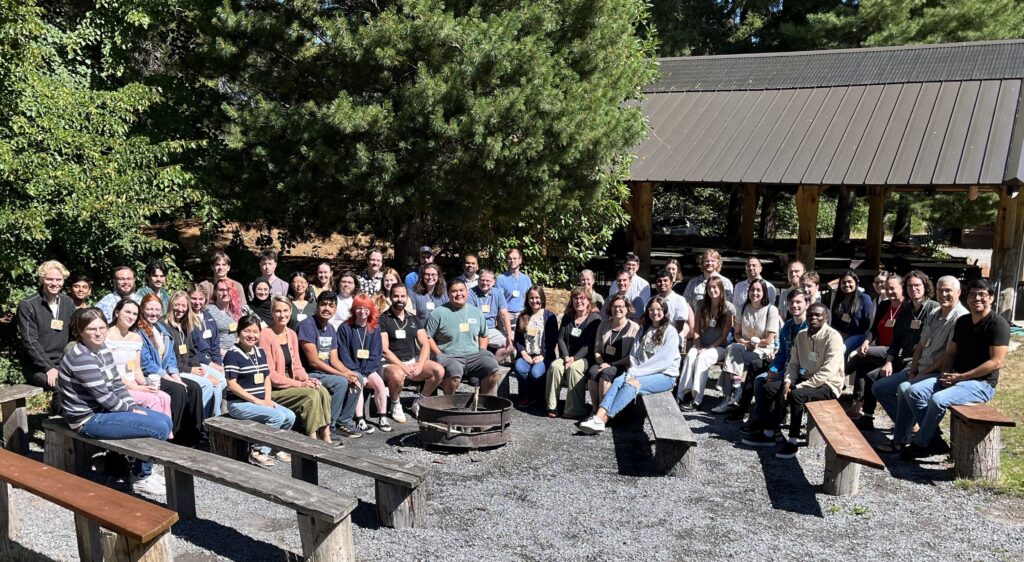
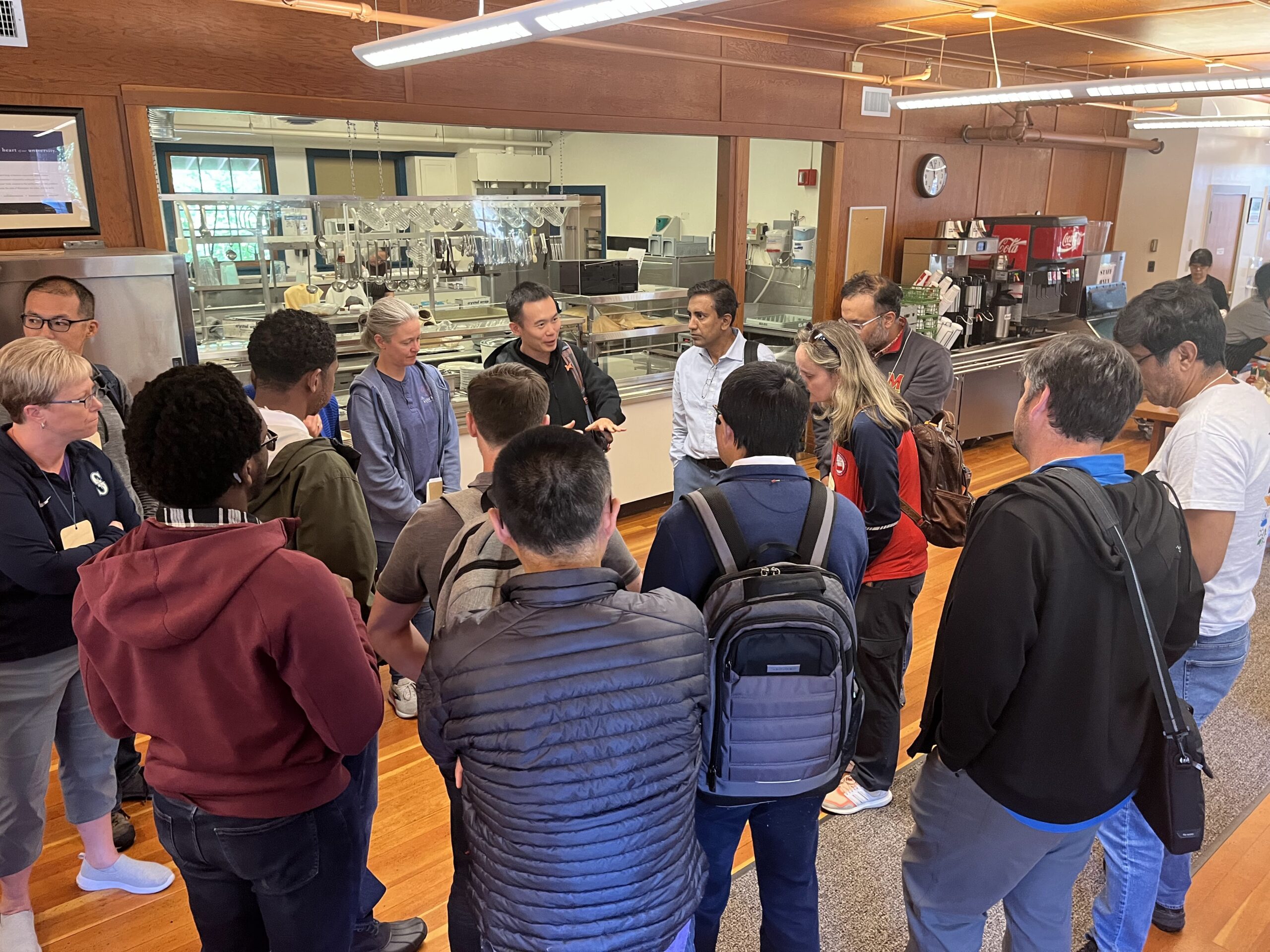
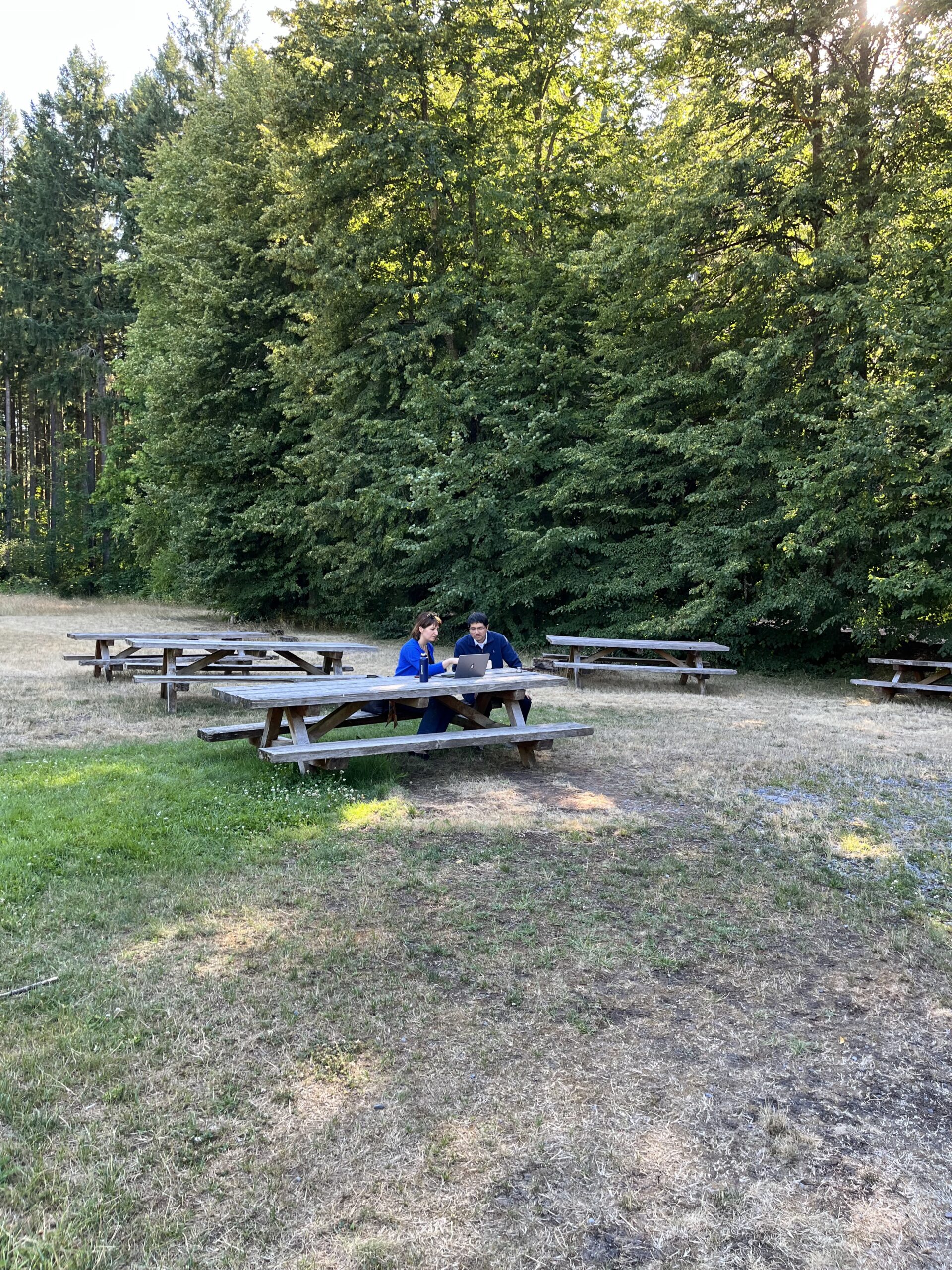
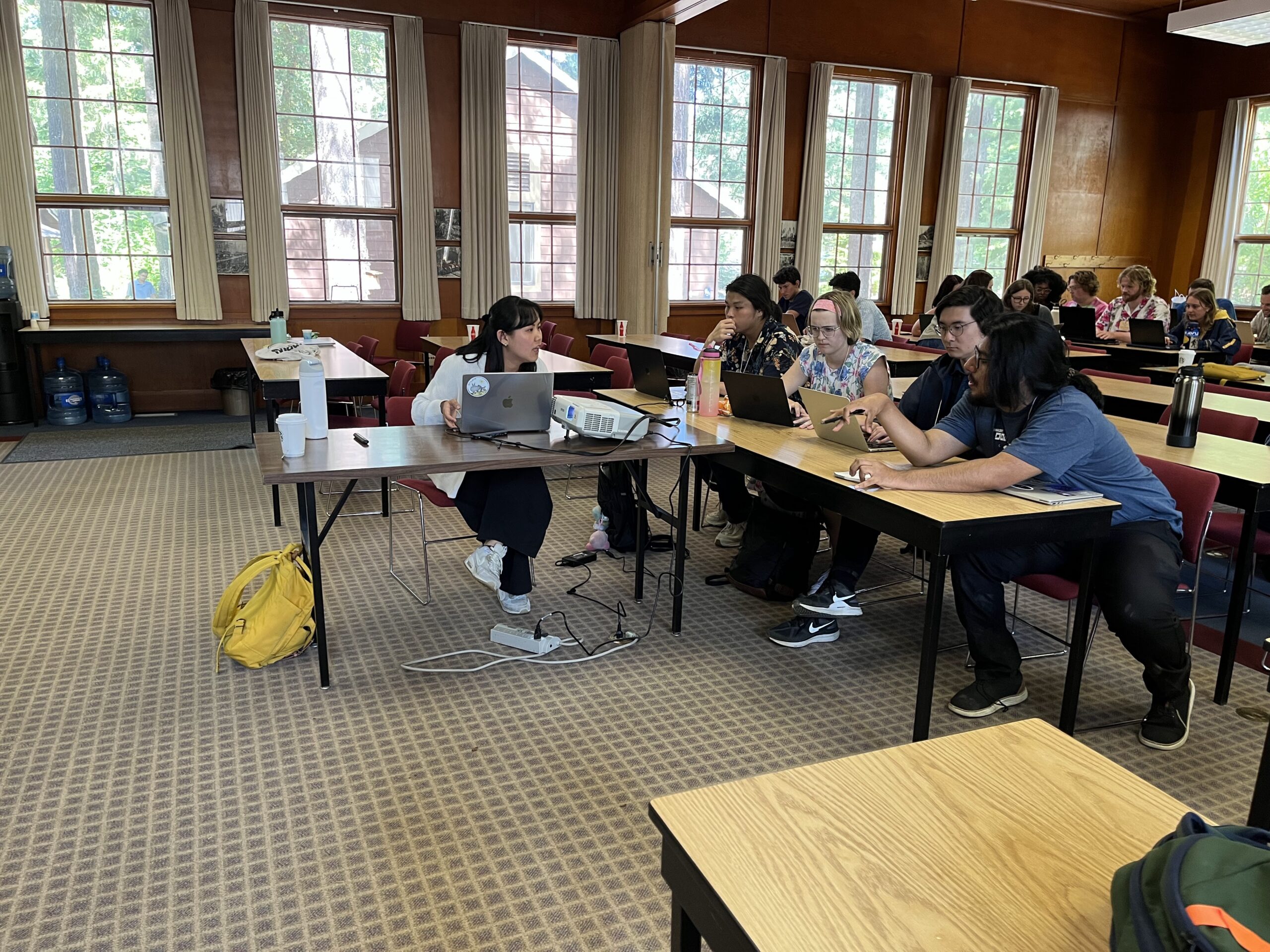
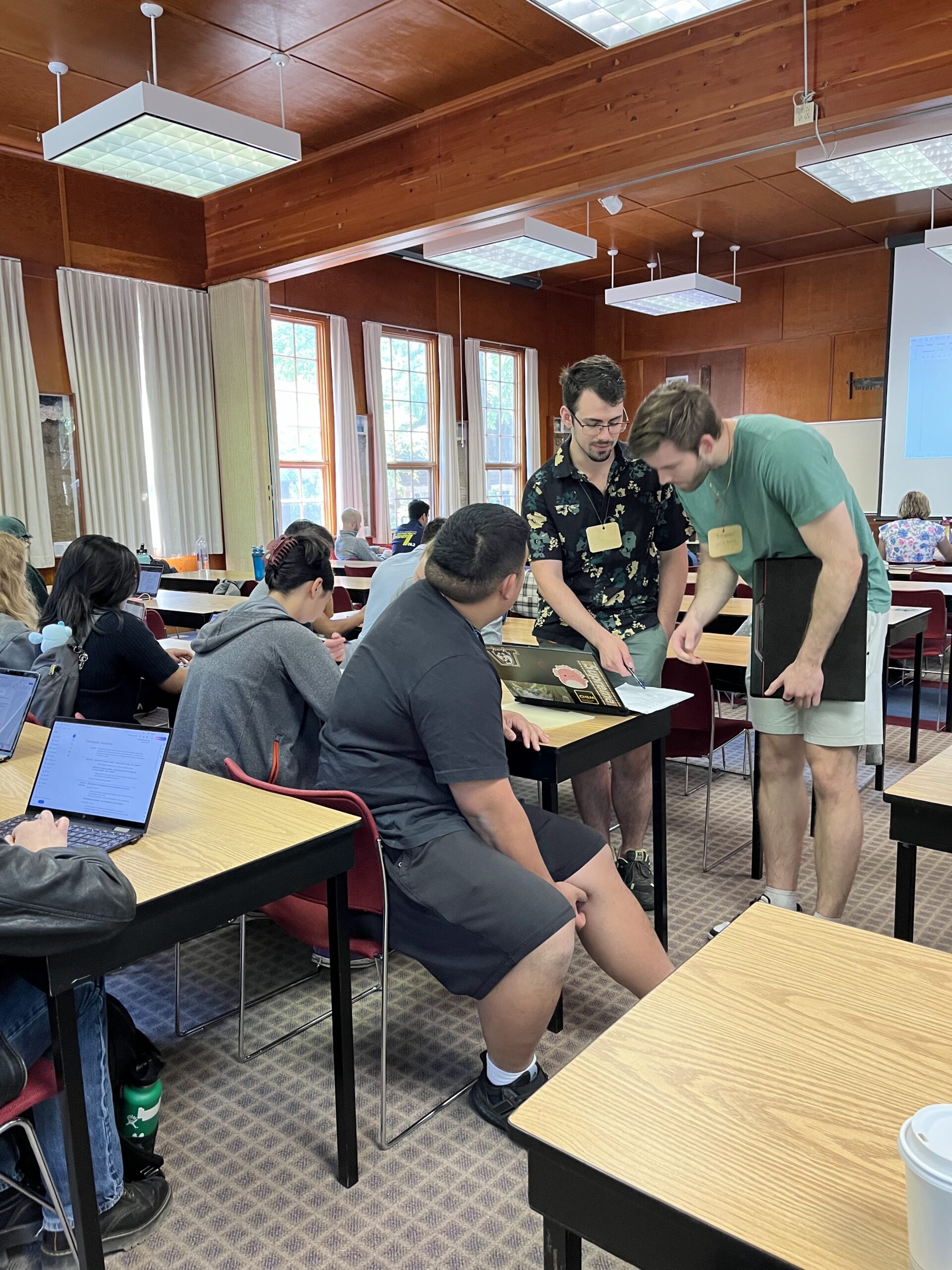
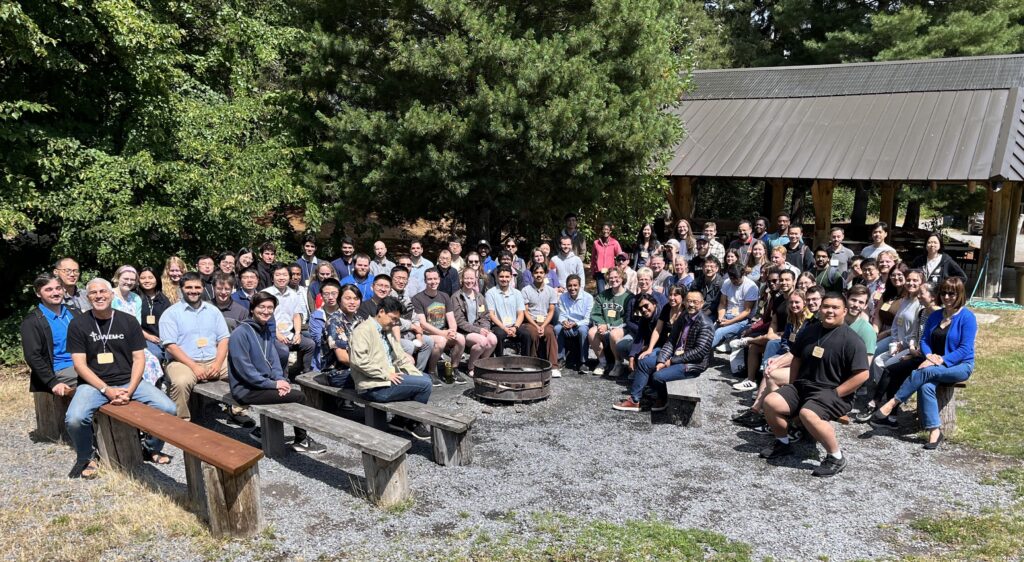
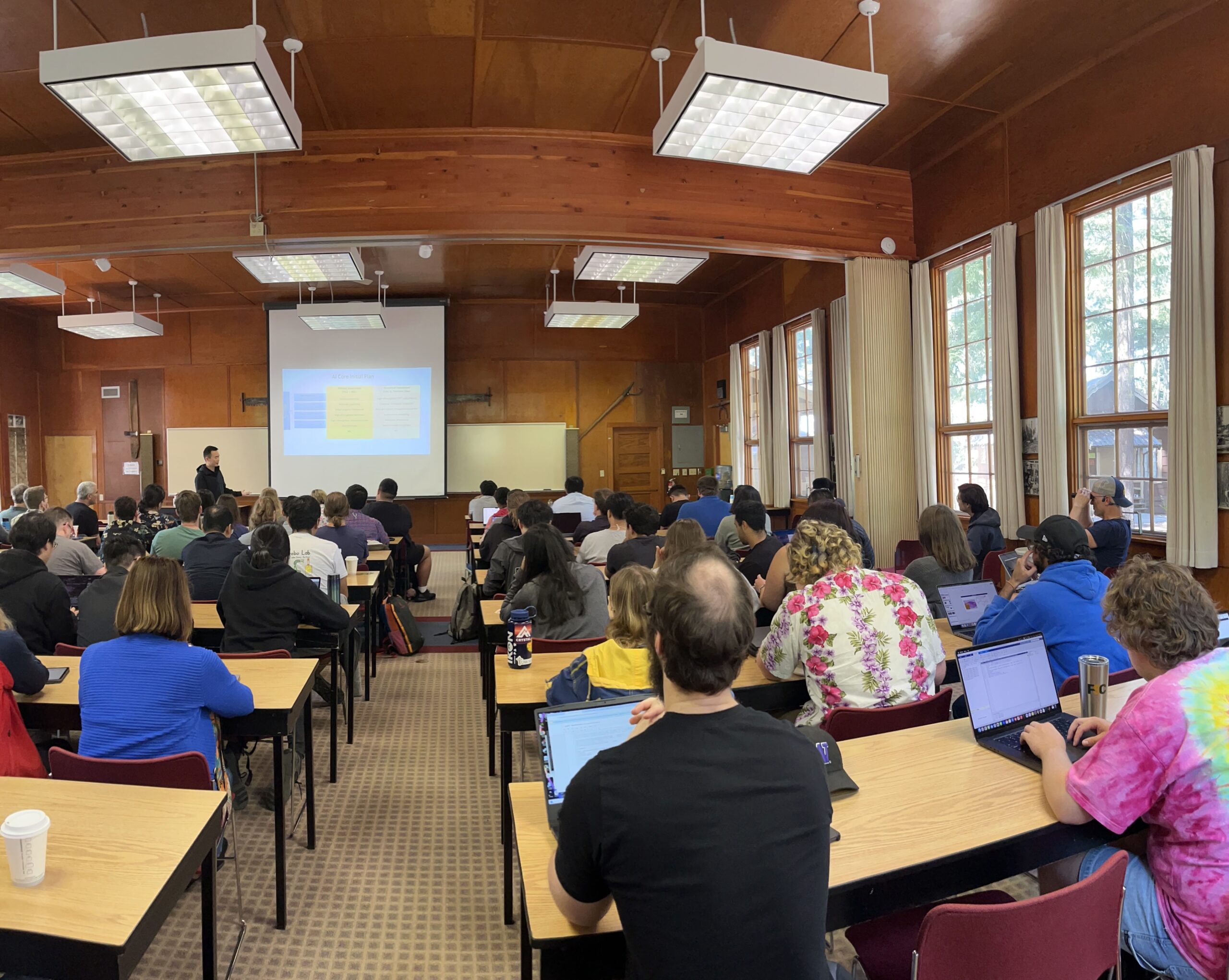
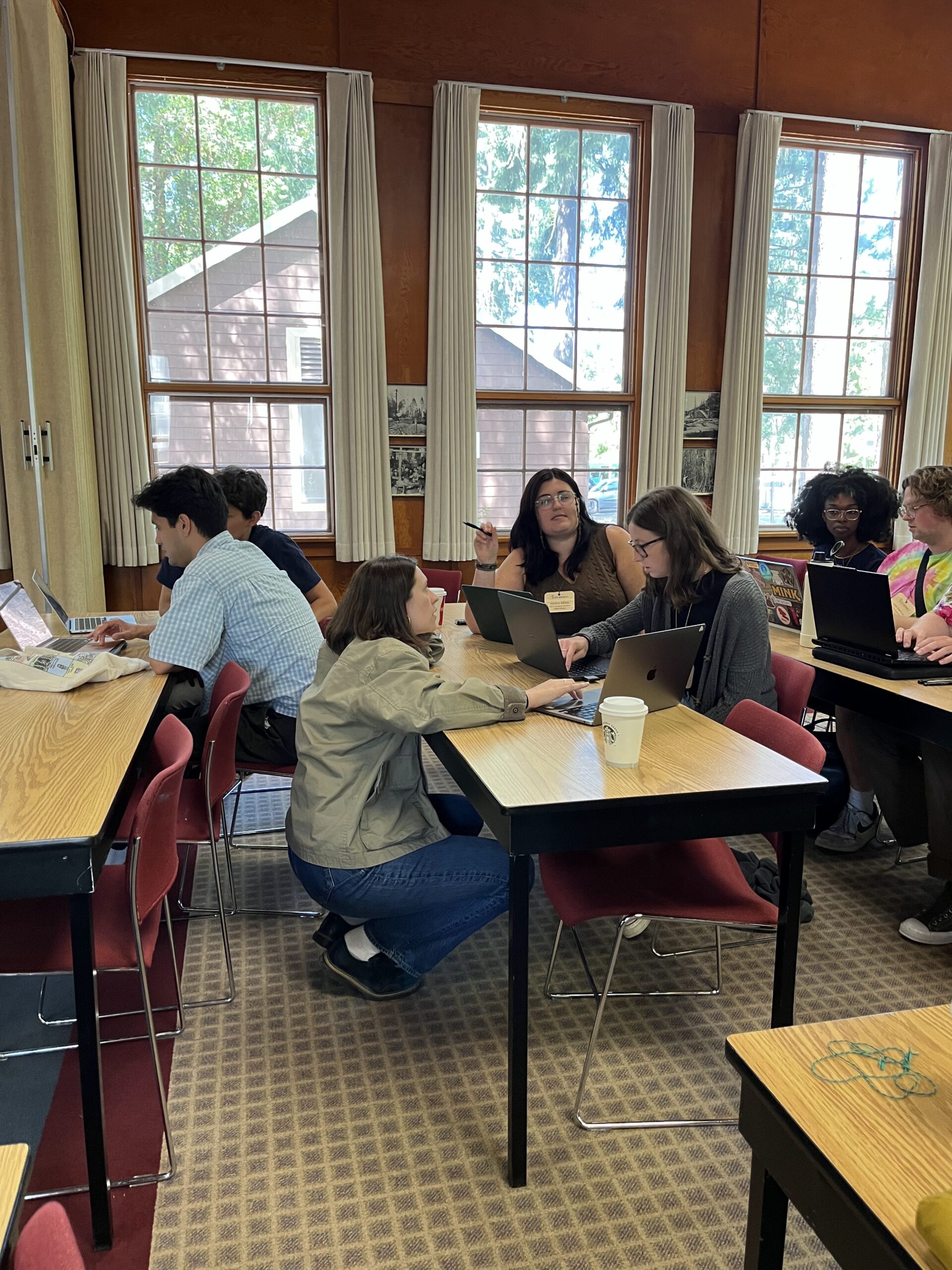

MEM-C AYRA Students Wrap Up an Exciting Year of Discovery and Innovation
This year’s cohort of students in MEM-C’s Academic Year Research Accelerator (AYRA) Research Experience for Undergraduates (REU) program, wrapped up an impressive school year of hands-on research, diving deep into cutting-edge materials science topics. From nanoparticle synthesis and conductivity studies to semiconductor nanocrystals and graphene-based heterostructures, these talented undergraduates explored a wide range of research areas that are shaping the future of materials engineering.
Working alongside dedicated graduate student mentors and hosted in the labs of Professors David Cobden, Daniel Gamelin, Mo Li, Lilo Pozzo, Matthew Yankowitz, and Alexandra Velian, the students not only learned the ropes of academic research but also contributed meaningfully to ongoing projects. Their work culminated in a lively presentation session showcasing projects such as enhancing high-throughput synthesis platforms, investigating metalated cluster behavior, and integrating biomolecules into 2D materials.
A huge thank you goes out to the professors for generously welcoming the students into their labs and to the graduate student mentors for their guidance, patience, and encouragement throughout the year. MEM-C is proud to support these students and looks forward to seeing where their research journeys take them next!
| Name | Mentor | Faculty |
| Aleksandra Grey | Kiran Vaddi | Lilo Pozzo |
| Jake Klompus | Zach Wylie | Lilo Pozzo |
| Alice Leppert | Eden Tzanetopoulos | Daniel Gamelin |
| Debora Mugisha | Toby Chu & Ellis Thompson | Matt Yankowitz |
| Viru Sharma | Gianluca Delgado | David Cobden |
| Grace Pardini | Adina Ripin | Mo Li |
| Simon Wong | Robert Love | Alexandra Velian |





MEM-C Brings SQUID Magnetometer to UW Seattle Shared Facilities
MEM-C’s Shared Facilities (MSF) has a new addition! The Quantum Design MPMS3 was installed and commissioned in February 2025 and is ready for use by the scientific community at-large. As a shared facility, the MPMS3 is available for all registered and trained users, even those unaffiliated with MEM-C and even those external to UW. Check out the access page on the MEM-C website for more information or contact the SQUID superusers for details.
Funding for the MEM-C SQUID was made possible by MEM-C’s award from the NSF MRSEC program (DMR-2308979), the University of Washington Quantum Information Sciences and Engineering (QISE) initiative supported by the College of Engineering and College of Arts and Sciences and the UW Department of Chemistry. The MEM-C SQUID is the only MPMS3 instrument available in a shared facility space in the PNW (the nearest one we know of is at UCSB’s MRSEC shared facilities MRL).
To give the SQUID a proper launch, MEM-C is hosting a seminar on April 10th, 2025, with Dr. Randy K. Dumas, Quantum Design, Applications Scientist. The seminar will be in MolES 115 from 1PM to 4PM. The seminar is open for anyone interested to attend! The event will be hosted by Dr. Chaowei Hu, Physics Postdoctoral Scholar in the Xu and Chu groups who is the MEM-C superuser for the MPMS3. The seminar will feature application talks by Randy and MEM-C graduate students will also give brief descriptions of their research plans that rely on the SQUID’s capabilities.
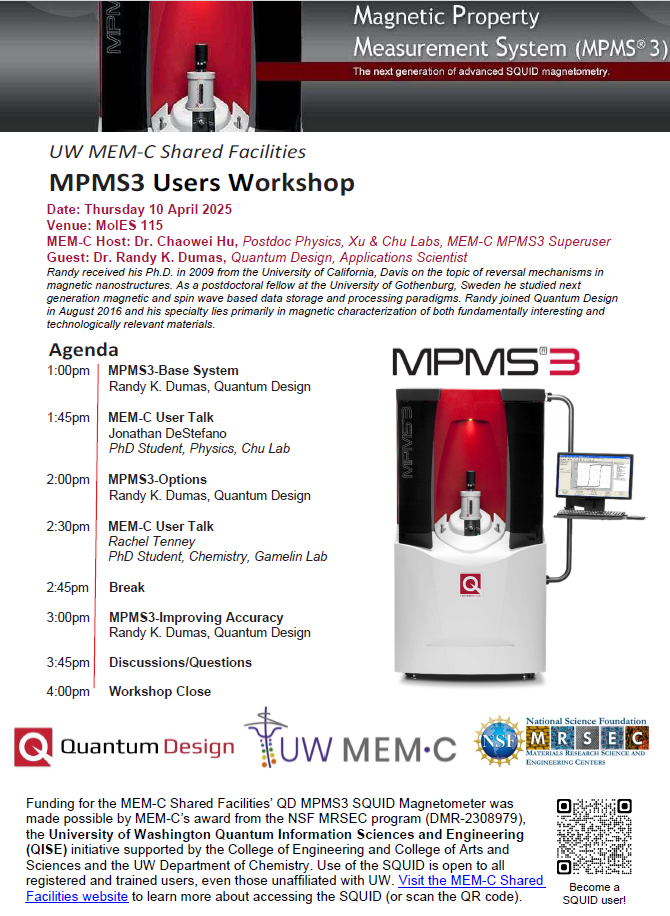
MEM-C & PNNL Collaboration Meeting Held in Richland
A delegation of MEM-C researchers traveled to PNNL for tours and facility tours last last Wednesday. The UW visiting group consisted of five PhD students from the De Yoreo, Gamelin, Idrobo, Mouradian, Rorrer, Xu, and Fu groups), one postdoc (Rorrer group) and De Yoreo, Gamelin, and Idrobo from the UW faculty side.
The visit featured a series of short talks by PNNL staff scientists, including Le Wang (thin films), Grant Johnson (chemical separations), Zbynek Novotny (scanning tunneling microscopy), Maxim Ziatdinov (AI/ML), Chongmin Wang (batteries and in-situ TEM), and Micah Prange (density functional theory). In addition, Scott Smith provided an overview of career opportunities at a national laboratory. MEM-C visitors also toured the laboratories in PNNL’s new Energy Sciences Center (ESC), which houses state-of-the-art instrumentation such as in-situ electron microscopes, an atom probe, molecular beam epitaxy and pulsed laser deposition chambers, a low-temperature scanning tunneling microscope, and a magnetic resonance spectrometer.
During the visit, Gamelin and Idrobo met with Novotny to discuss the feasibility of detecting Yb and measuring its spin state in a few-layer CrI3 encapsulated with BN/graphene. Novotny recommended reaching out to Dr. Percy Zahl at the Center for Functional Materials (CFM) at Brookhaven National Laboratory (BNL) due to the specialized requirements of such measurements. MEM-C also plans to invite Dr. Maxim Ziatdinov to the UW campus. An expert in AI/ML methods and their implementation in imaging analysis, electron microscopy workflows, and materials synthesis, Dr. Ziatdinov would lead hands-on workshops and contribute to strengthening the capabilities of the AI Core.
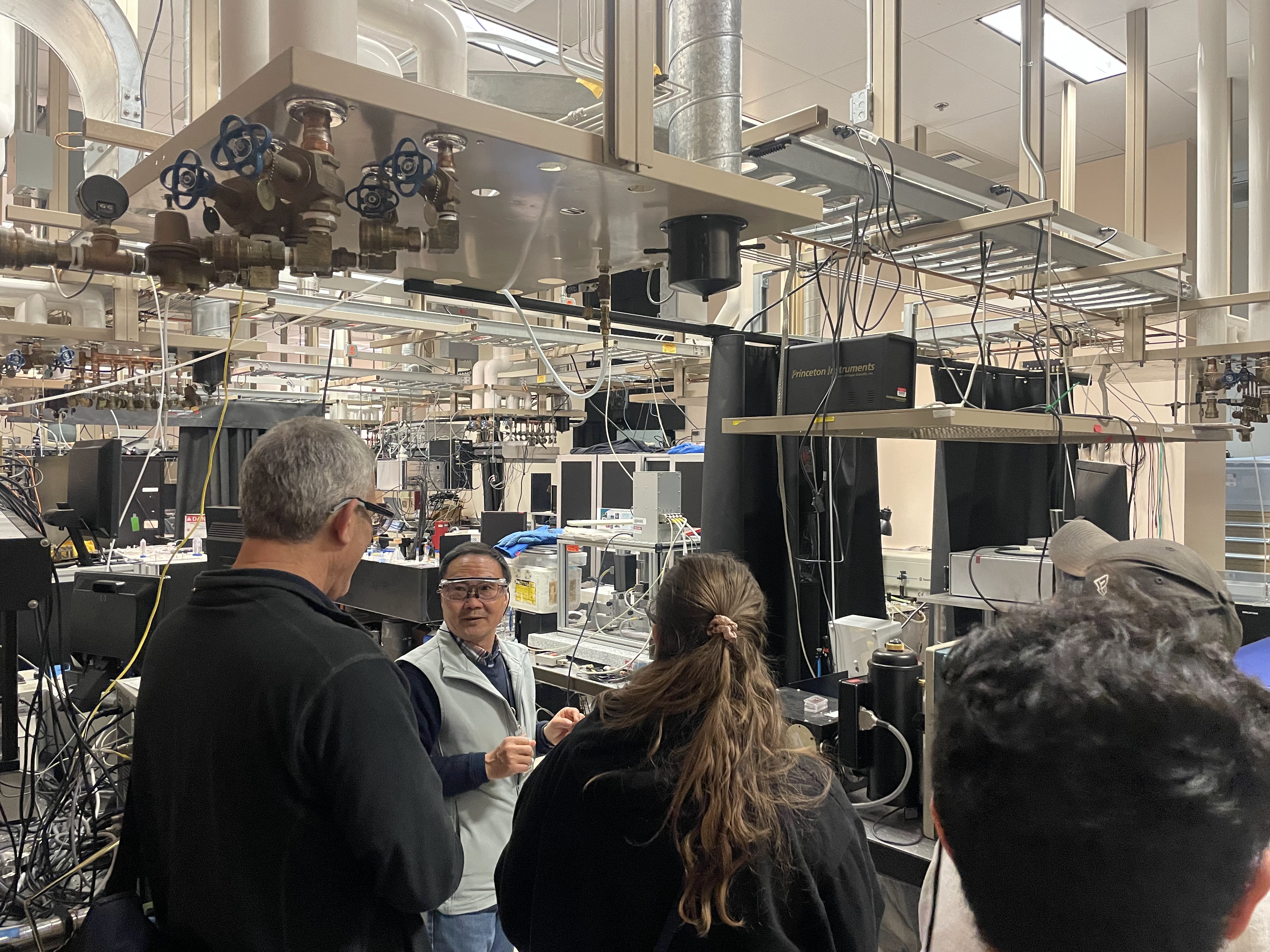
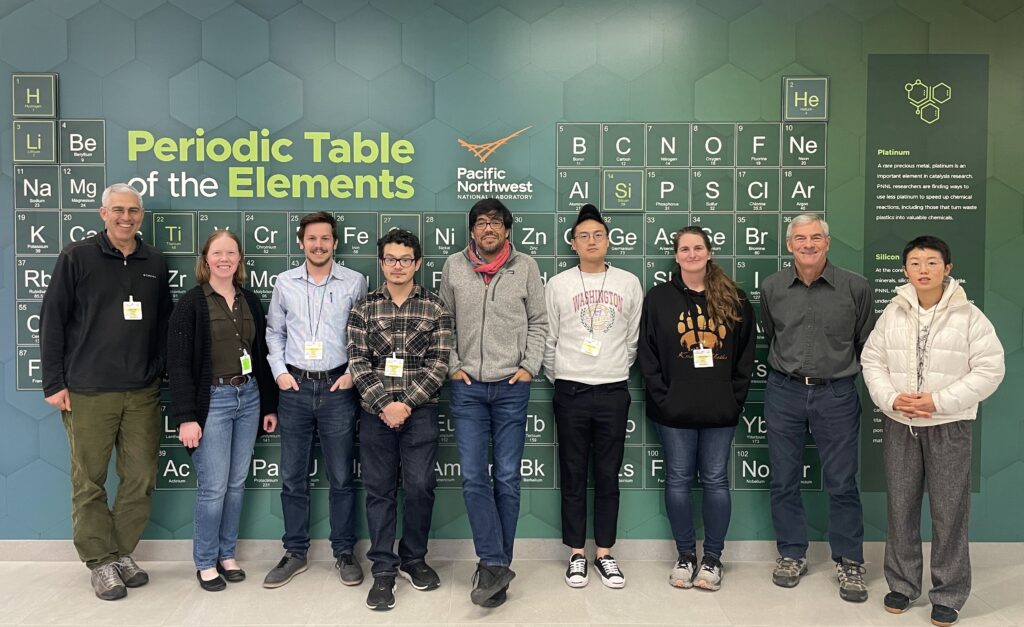
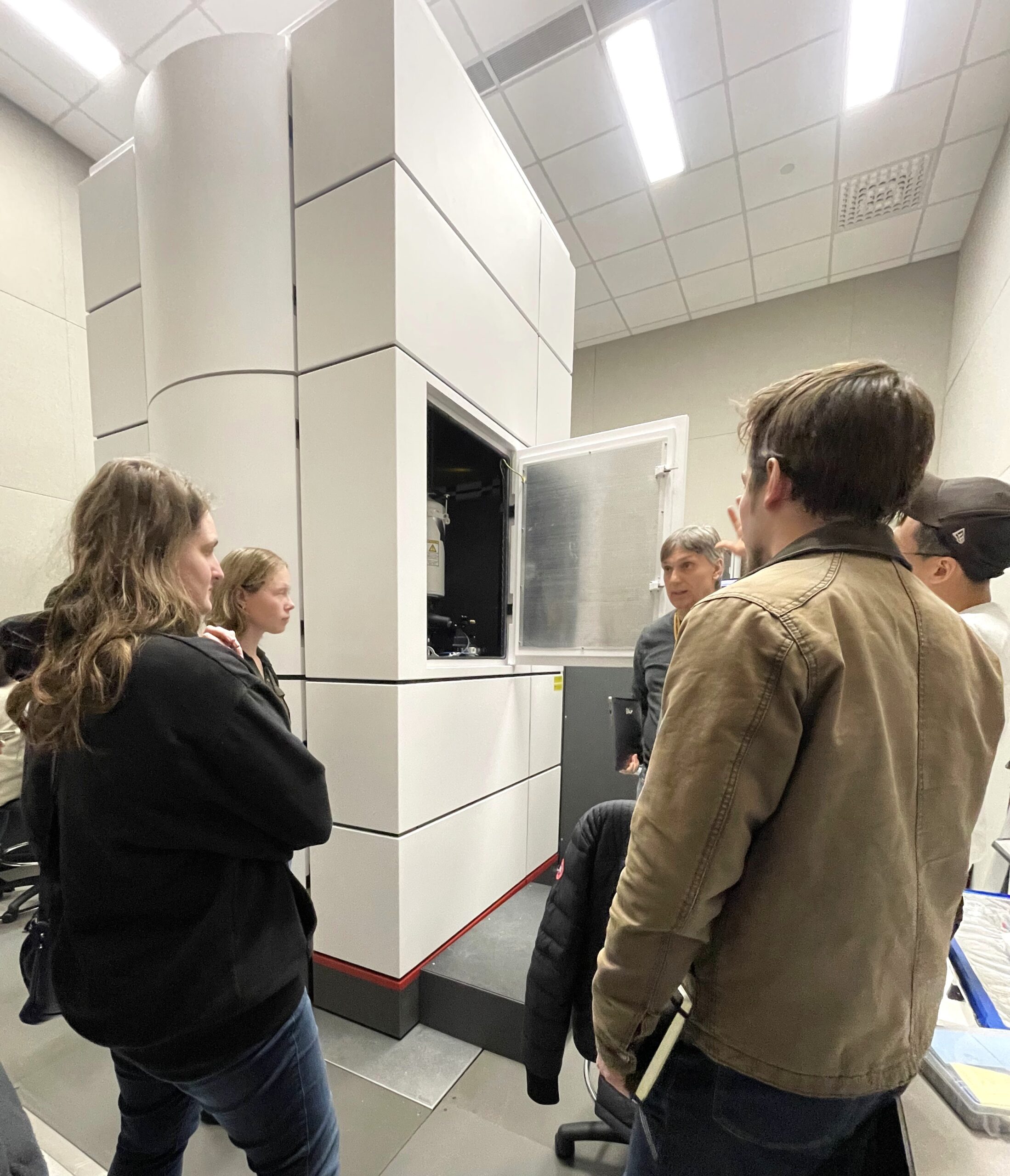
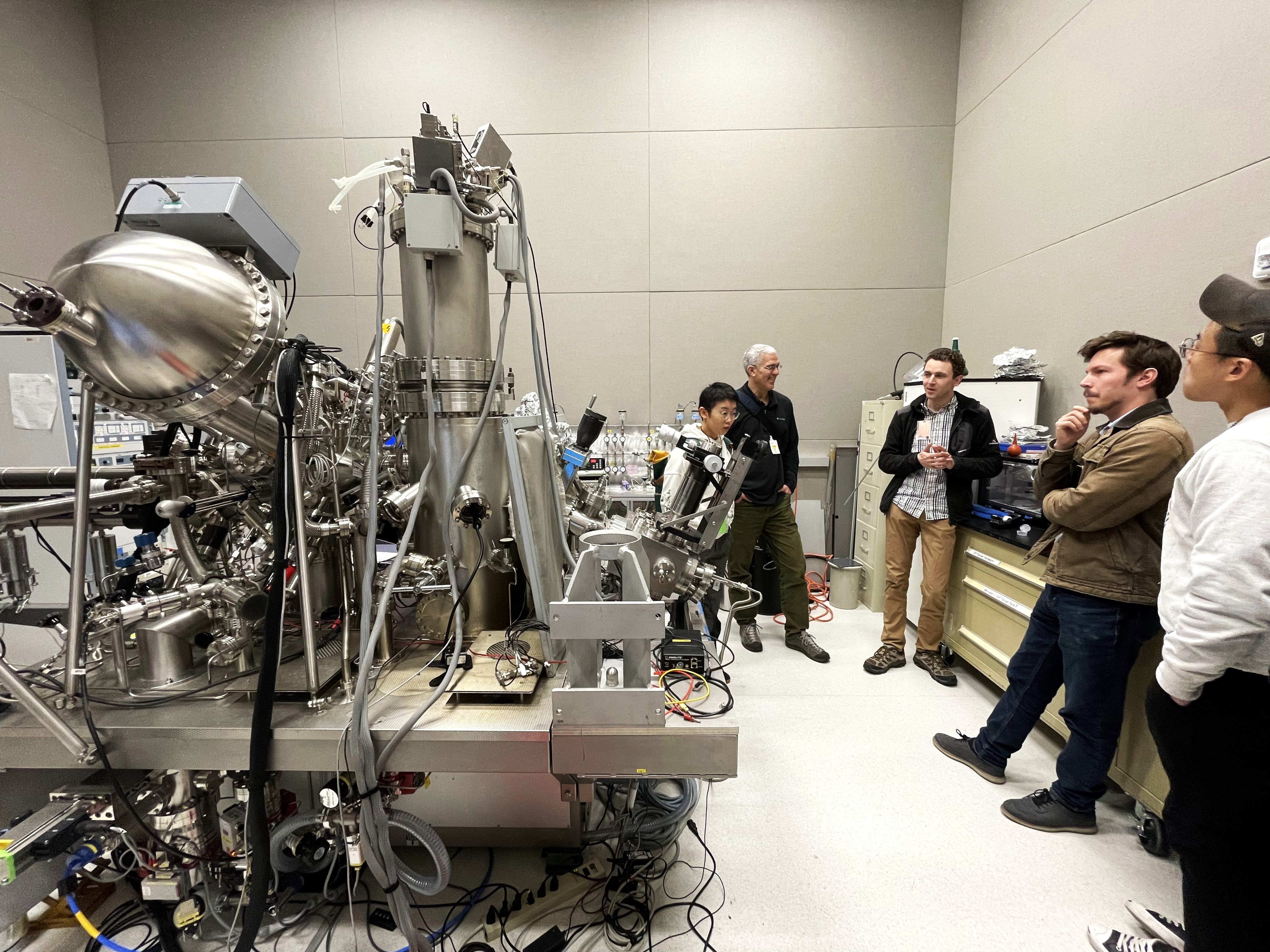
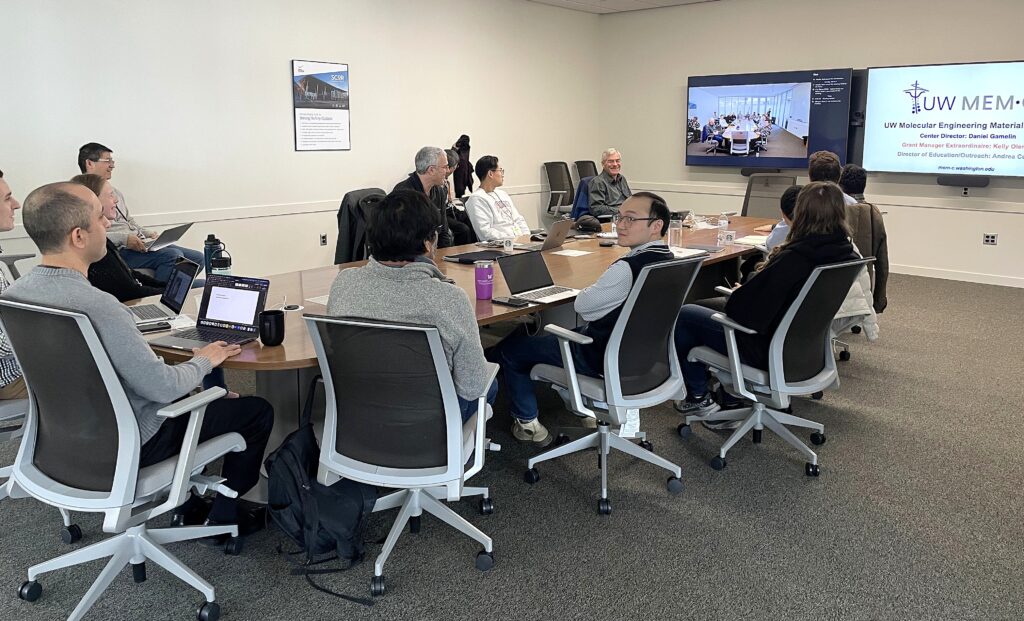
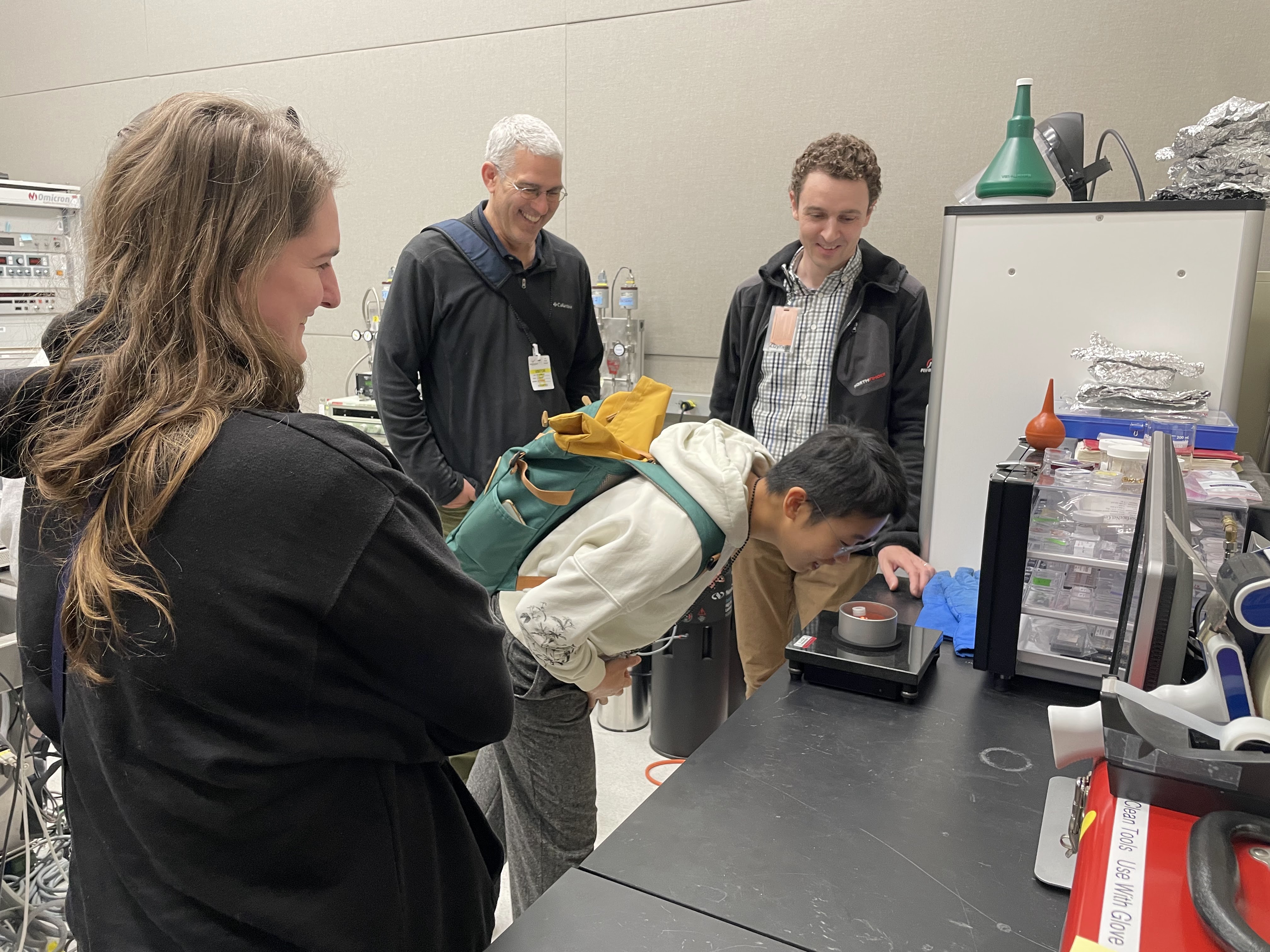
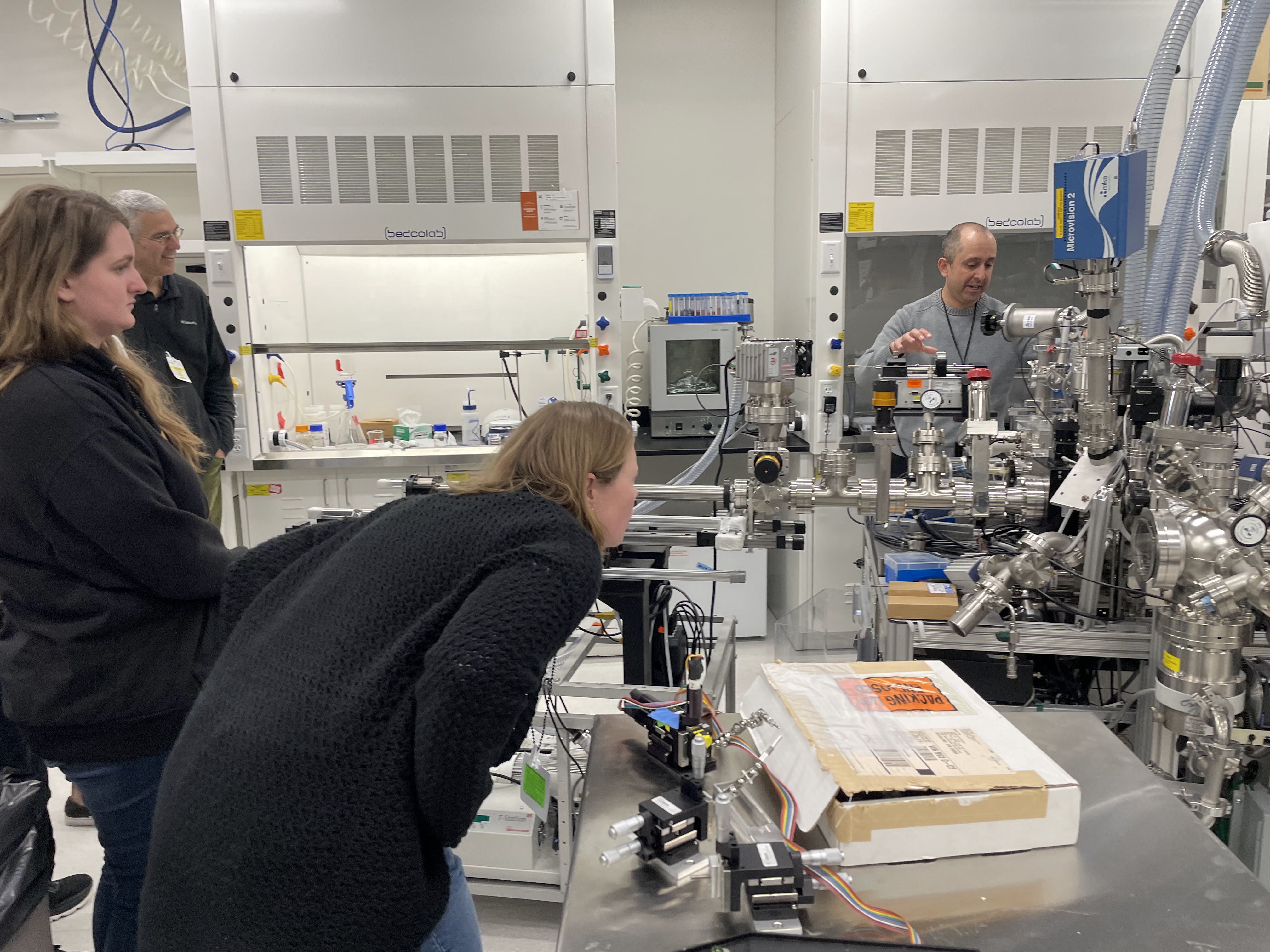
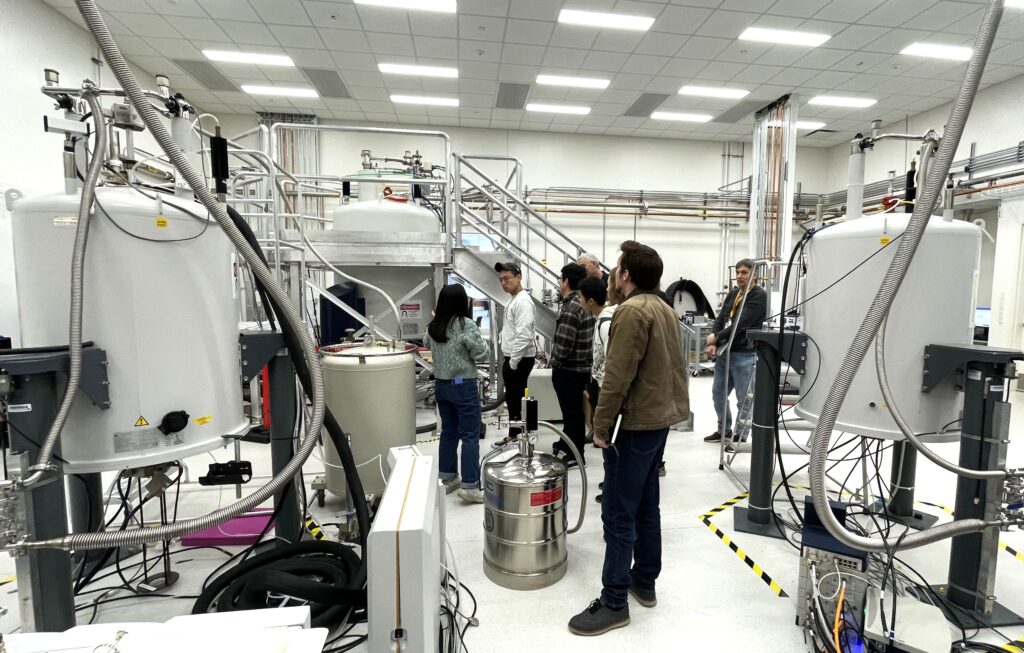
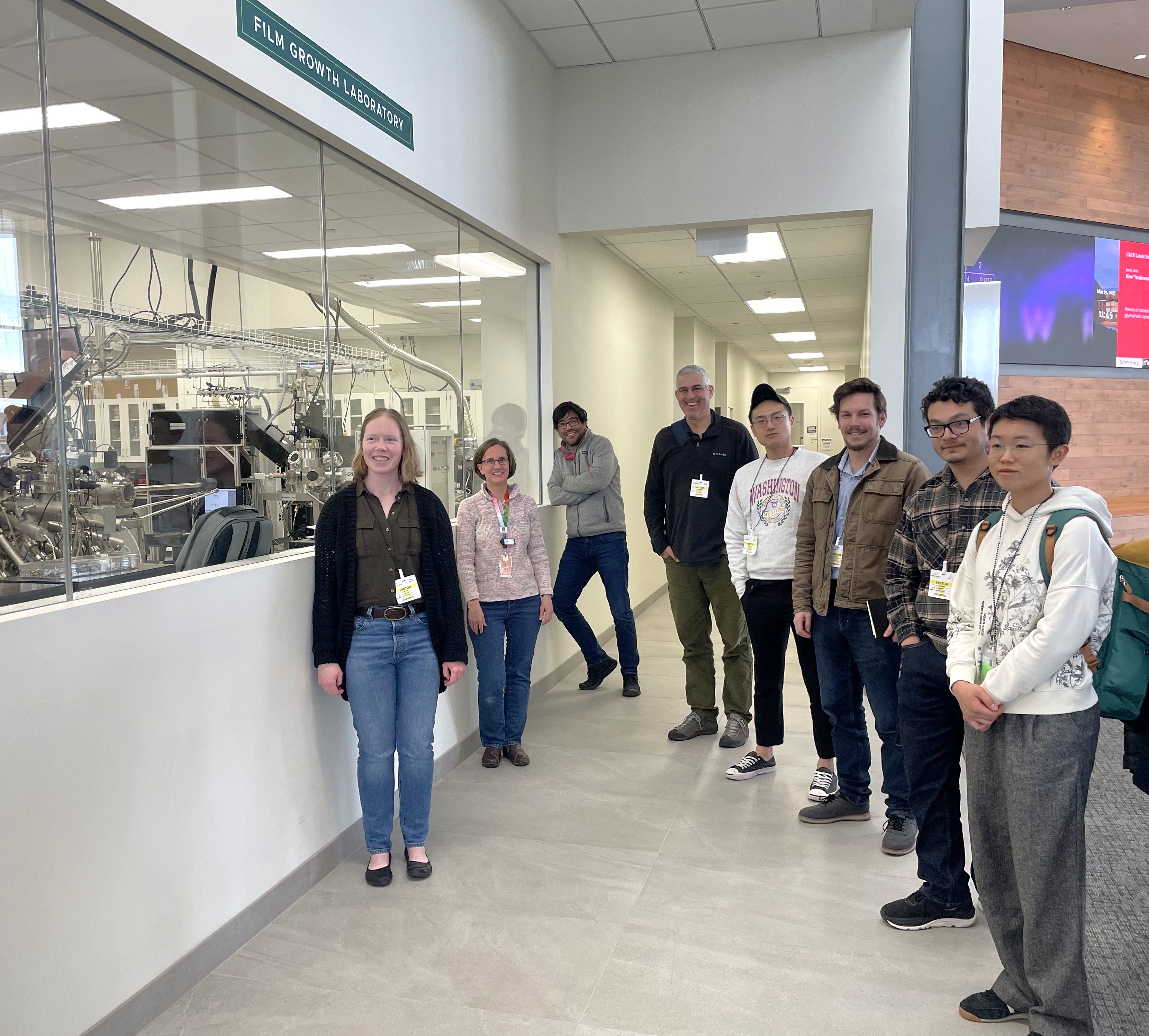
MEM-C Visits PREM Partners UH MRE-C for Research and NanoCamp
UW MEM-C faculty and graduate students along with other UW faculty participating in the UH PREM traveled to Hawai’i last week to visit our partners at the University of Hawaii at Manoa Materials and Education Consortium (UH MRE-C). Seven MEM-C graduate students (Cossairt, Gamelin, Pozzo, Rorrer, Roumeli, Sherman, D. J. Xiao groups) and seven MEM-C faculty (Cossairt, Gamelin, Idrobo, Pozzo, Rorrer, Sherman, Carroll) were part of the visiting contingent from UW. The week started out with two full days of PREM research meetings, strategy sessions, and student presentations on the UH Manoa campus. Those research meetings were followed by three full days of MEM-C and MRE-C graduate students and faculty bringing MEM-C’s NanoCamp to Honolulu area schools with signature lesson plans like Light as a Tool, Nanoscience & Color, Nanosized Magnets, and more. UW-UH joint outreach groups (including 22 UH students, postdocs, faculty) led hands-on NanoCamp activities for over 650 students at 6 middle and high schools over 3 days!
MEM-C + QuantumX Winter Symposium Brings 100 UW Researchers Together
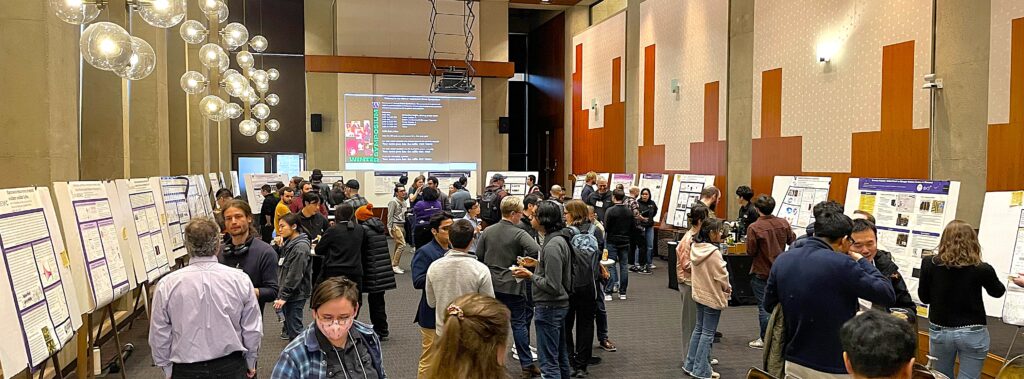
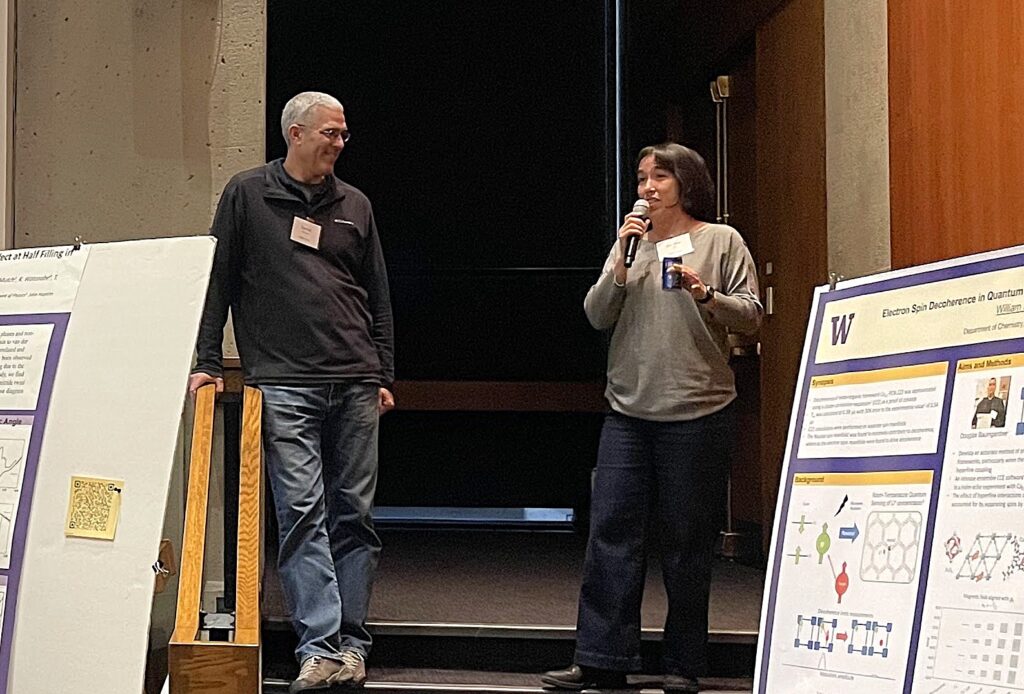
MEM-C held its 3rd annual Winter Symposium this past Tuesday. The event was held in conjunction with UW QuantumX, an initiative on campus involving several MEM-C faculty, most notably Fu who is the QuantumX Director. QuantumX was established as an interdisciplinary Deans-level initiative that seeks to advance and integrate QISE research, education, and commercialization across the UW community and its partners. This event combined MEM-C’s fundamental materials research with the broader quantum community at UW. This year’s MEM-C + QuantumX Symposium brought together nearly 100 attendees to view the current research of UW graduate students and postdocs contributing to fundamental research in quantum-based sciences. The three-hour event featured graduate student and postdoc poster sessions (~40 posters), remarks by Gamelin and Fu, and time for everyone to meet and discuss future collaborations.
MEM-C Seed Awards Announced for 2024/2025
The MEM-C Seed awards for the 2024/2025 award period have been announced!
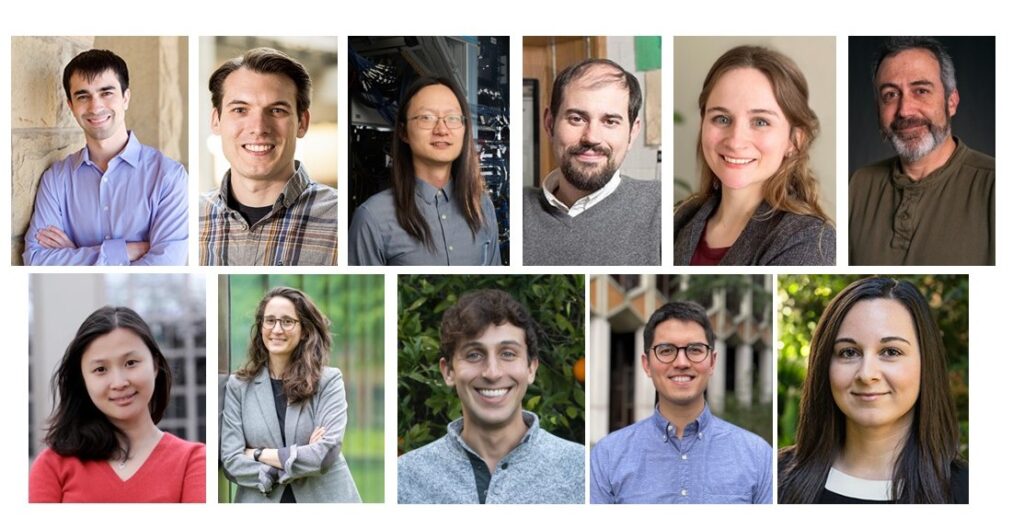
Exploratory Seed grants have been awarded to UW faculty across several departments to help nascent innovative materials research efforts obtain preliminary results. Prof. Mo Chen (MSE) is leading a collaboration with Prof. Mo Li (ECE, IRG-2) to investigate in-situ strain control in superconducting qubits. Prof. David Masiello (Chemistry) is working with Prof. Juan Carlos Idrobo (IRG-1 & IRG-2) and Prof. Di Xiao (IRG-2) to explore the topological state tomography in 2D quantum materials. Prof. Sara Mouradian (ECE) will probe electric field sensing at the quantum limit for materials science with their collaborators Prof. Alexandra Velian (IRG-2) and Prof. Mo Li (IRG-2). Prof. Doug Reed (Chemistry) is teaming up with Prof. Daniel Gamelin (IRG-1) to manipulate magnetic ordering in porous chromium-halide perovskites. Prof. Gerald Seidler (Physics) will research crystal-field and covalency effects in van der Waals metal-halide compounds using multi-modal X-Ray spectroscopy and will be joined in this effort by Prof. Daniel Gamelin (IRG-1) and Prof. Xiaosong Li (IRG-1).
Multidisciplinary Team grants have been awarded to UW materials-research teams in areas complementary to MEM-C’s current research profile. Prof. Julie Rorrer (ChemE) and Prof. Eleftheria Roumeli will pursue developing biomass-derived carbon supports for catalytic applications in waste plastic deconstruction and will be joined in this effort by Prof. Lilo Pozzo (IRG-1) along with collaborators from the University of Hawai’i, Prof. Robert Johnson (UH PREM) & Prof. Przemyslaw Dera (UH PREM). Prof. Zachary Sherman (ChemE) and Prof. David Bergsman (ChemE) will also be teaming up with Prof. Lilo Pozzo (IRG-1) and collaborators from UH, Joseph Brown (UH PREM) and Chrisy Xiyu Du (UH PREM), to test the autonomous inverse design of colloidal metasurfaces with targeted dielectric function. Finally, Prof. Shijing Sun (MechE) and Prof. Kevin Jamieson (CSE) will enhance MEM-C’s AI Core efforts with their project with Prof. Dianne Xiao (IRG-1) to develop an AI agent for energy-efficient inorganic synthesis.
Congratulations to the MEM-C Seed awardees! We are lucky to have you join us in our materials science pursuits!
MEM-C Makes Headlines
MEM-C research has been featured in a few recent news stories! MEM-C’s PREM awards with UCF and UH were featured in the Department of Chemistry’s news in a feature “NSF awards UW partners $13.6M to broaden access in the sciences“. UCF Today also had a feature on the PREM award “UCF Awarded $4.2 Million Grant for Research and Student Education in Quantum Materials“. Prof. Kai-Mei Fu (IRG-1 co-Lead) was highlighted in the UW News Perspectives piece “The Quantum Quest“.



